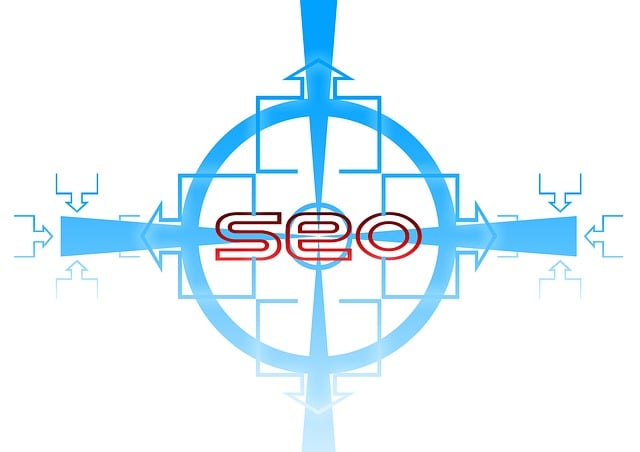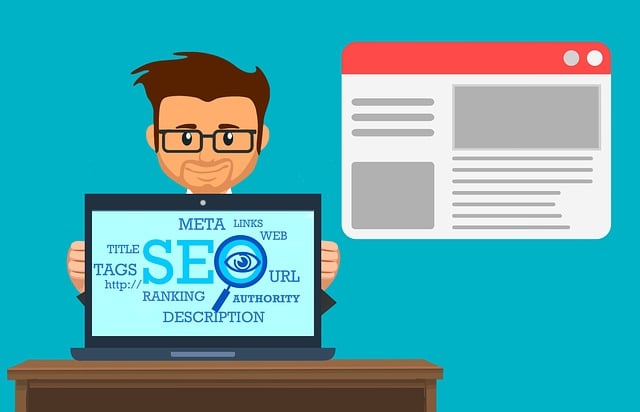Search Engine Optimization (SEO) is crucial for e-commerce success, driving traffic, boosting conversions, and increasing sales through visibility and improved user experience. By optimizing web pages with relevant keywords, brands build authority, engage users, and enhance content value, leading to lower bounce rates and higher conversion rates. SEO's long-term benefits include increased organic reach, cost-effective growth, and a loyal customer base. Effective strategies like keyword targeting, high-quality content, link building, and UX optimizations drive success in the competitive e-commerce landscape. Measuring performance using tools like Google Analytics is essential for refining SEO strategies and maximizing the benefits of Search Engine Optimization.
In today’s digital landscape, e-commerce success hinges on robust Search Engine Optimization (SEO). Understanding the fundamentals of e-commerce SEO is key to unlocking online visibility and driving targeted traffic to your store. This article delves into the multifaceted benefits of SEO for e-commerce growth. From optimizing product pages and leveraging keywords to building quality backlinks and measuring performance, each section unveils strategic insights to enhance your online presence and boost conversions.
Understanding E-commerce SEO: The Foundation of Online Visibility

Search Engine Optimization (SEO) is not just a buzzword; it’s the bedrock upon which e-commerce success is built. For online stores, understanding and leveraging SEO strategies can drive significant traffic, boost conversions, and ultimately, increase sales. By optimizing web pages for relevant keywords, you ensure your store appears in search results when potential customers are actively looking for products or services like yours.
The benefits of SEO extend beyond immediate visibility. It fosters brand authority by establishing your business as a trusted source of information within the industry. Well-optimized content educates and engages users, leading to longer dwell times on pages and lower bounce rates. This not only improves user experience but also sends powerful signals to search engines, indicating that your site offers valuable content. Over time, consistent SEO efforts can lead to increased organic reach, making it a cost-effective strategy for long-term e-commerce growth.
How Search Engine Optimization Drives Traffic to Your Store

Search Engine Optimization (SEO) is a powerful tool that significantly drives traffic to your e-commerce store. By optimizing your website for relevant keywords, you ensure that potential customers find your products when searching online. SEO improves your store’s visibility on search engine results pages (SERPs), making it easier for folks to discover your brand and click through to your site. The benefits extend beyond increased visibility; well-optimized content provides value to users, answering their queries and demonstrating your expertise in the process.
When you understand what customers are searching for and tailor your content accordingly, you attract more qualified leads. SEO also fosters trust and credibility as it positions your store as a relevant and reliable source of information. As a result, visitors are more likely to engage with your brand, browse products, and ultimately make purchases—all critical aspects of e-commerce growth.
Unlocking the Power of Organic Search: A Growth Strategy

In today’s digital landscape, e-commerce success hinges on one key strategy: harnessing the power of organic search through Search Engine Optimization (SEO). By optimizing your online store for relevant keywords and user intent, you unlock a wealth of benefits that drive growth. Not only does SEO increase visibility, but it also attracts high-quality traffic who are actively seeking your products or services, leading to higher conversion rates and increased sales.
Organic search is a cost-effective and sustainable growth strategy compared to paid advertising. It builds brand authority over time, as consistent content creation and relevant keyword targeting establish your e-commerce site as a trusted resource for potential customers. This long-term approach not only boosts your online presence but also cultivates a loyal customer base, ensuring continuous growth and success in the competitive e-commerce market.
Enhancing User Experience: Key Factors for E-commerce Success

In today’s digital era, e-commerce success hinges on enhancing user experience (UX). SEO plays a pivotal role in this by driving targeted traffic to online stores. When users find what they’re looking for effortlessly, bounce rates decline, and conversions increase. Key factors for UX optimization include fast loading times, mobile responsiveness, intuitive navigation, high-quality product descriptions, and clear calls-to-action. These elements not only improve usability but also send positive signals to search engines, enhancing the overall visibility and ranking of e-commerce sites.
Benefits of Search Engine Optimization, such as improved click-through rates and increased organic reach, contribute directly to a better user experience. By optimizing product listings with relevant keywords, compelling meta descriptions, and rich snippets, e-commerce sites attract more qualified visitors who are actively searching for their products. This targeted audience is more likely to engage, browse, and ultimately make purchases, leading to stronger sales figures and a thriving online business.
Optimizing Product Pages for Better Rankings and Conversions

Optimizing product pages is a strategic move that offers significant advantages in both search engine rankings and conversion rates. By enhancing these key pages, e-commerce businesses can ensure their products are not only discovered by potential customers but also resonate with them enough to drive sales. The benefits of search engine optimization (SEO) on product pages include improved visibility, as well as a better user experience. When a product page is optimized for relevant keywords and incorporates high-quality content along with visually appealing images, it becomes more likely to appear higher in search results.
This increase in rankings directly translates into greater organic traffic, which can lead to higher conversion rates. Additionally, SEO strategies for product pages help in providing clear and concise information about the product’s features and benefits, addressing potential customer queries, and ultimately influencing purchasing decisions. Through this strategic optimization, e-commerce sites can foster a seamless shopping experience that encourages users to not only browse but also make purchases.
Leveraging Keywords: Targeting the Right Audience for Your Store

The benefits of search engine optimization (SEO) for e-commerce growth cannot be overstated. By leveraging keywords, businesses can target the right audience for their store, ensuring that potential customers find them easily when searching online. This strategic approach involves thorough research to identify high-value keywords related to your products or services, which are then incorporated into various elements of your website, from meta descriptions to product titles and content.
Effective keyword targeting means creating a seamless experience for users who are already interested in what you offer. When your e-commerce site ranks higher in search engine results pages (SERPs), it not only increases visibility but also builds trust with prospective customers. This can lead to higher conversion rates, increased brand awareness, and stronger online presence, ultimately contributing to sustained growth and success in the competitive e-commerce landscape.
Building Quality Backlinks: A Essential E-commerce SEO Practice

Building quality backlinks is an essential practice in e-commerce SEO that offers numerous benefits for online stores. When high-authority websites link to yours, it signals to search engines that your site is a valuable resource. This can significantly boost your domain authority and improve your website’s ranking on search engine result pages (SERPs). Backlinks from reputable sources also increase visibility and credibility, as users tend to trust sites recommended by industry leaders.
By implementing effective link-building strategies, e-commerce businesses can attract organic traffic, enhance their online presence, and ultimately drive sales growth. This involves creating engaging content that naturally attracts links, collaborating with influencers or brands in the same niche, and securing mentions on popular websites. Each successful backlink contributes to a stronger online profile, making your e-commerce site more visible and accessible to potential customers searching for products or services related to your industry.
Measuring and Analyzing E-commerce SEO Performance

Measuring and analyzing e-commerce SEO performance is a crucial step in understanding the benefits of search engine optimization (SEO). By employing tools like Google Analytics, you can track key metrics such as organic traffic, conversion rates, and average order value. These insights help identify which SEO strategies are driving sales and which areas need improvement. For instance, tracking keyword rankings for targeted products or categories allows you to gauge the effectiveness of your on-page optimization efforts.
Moreover, analyzing user behavior through heatmaps and session recordings can reveal how visitors interact with your website after finding it through search engines. This data helps optimize user experience (UX), ensuring that relevant product information is easily accessible and encouraging conversions. Ultimately, regular performance analysis enables you to refine your SEO strategy, maximizing the benefits of optimization for sustained e-commerce growth.
